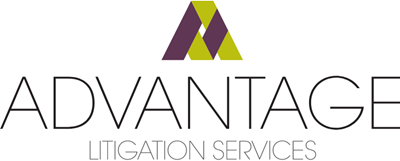Recovering Commercial Debt
Unpaid debts are an unwelcome hazard of operating in the commercial world. The reality of working life is that operating in the private sphere exposes a business to the risk that their fees will not be paid, or that the terms of an agreement are not honoured. In other words, the business will become a creditor and must attempt to recover commercial debt.
It is common practice that in exchange for the delivery of a particular service or product, there is payment of a fee. This happens in a variety of contexts: the delivery of goods by a private courier; or the provision of specialist services by an individual of a particular profession or trade. Regardless of the facts, when a product or service has been provided there will be requirement for payment to be given in exchange. However when payment is not forthcoming, this presents businesses with a problem on how they are to go about recovering what has become a debt.
How Can I Recover Commercial Debt in the UK?
It is important to be aware that there are particular rules that need to be followed before any action can be taken to ensure payment of a commercial debt. Where it has not been agreed when money will be paid, there can be no action taken until the payment becomes ‘late’. In law, payment will only become late either:
-
30 days after a customer gets an invoice; or
-
30 days after you deliver the goods or provide a service.
Where it has been agreed between parties when payment is expected, payment will become late if it is not provided by this particular point in time.
When payment of debt has become late there are some options available to you:
1. Charge interest on late payments
You are entitled by law to charge interest on commercial debts that have not been paid, but there is a limit on what level you can charge. You must only charge the ‘statutory interest’ rate, which is currently 8% plus the Bank of England base rate for business to business transactions. The issue however is that this does not mean that you will in fact recover any commercial debt any quicker.
2. Claim debt recovery costs and instructing private firms
In conjunction with the charging of interest, you could also charge a fixed sum of money for the cost of recovering a late payment. However, it should be borne in mind that there are set limits on how much you are allowed to charge, depending on the level of outstanding debt.
A debt recovery firm will be able to explore avenues to attempt to recover the debt in question. However it is important to note that this will cause you to incur additional costs upfront, meaning that you may not be able to recoup what could amounting to a substantial outlay in attempting to secure an outstanding commercial debt. Furthermore it is also important to note that there is no guarantee that the instruction of private debt collections firms will reduce the time that you need to wait to have an unpaid debt secured.
The reality is that securing commercial debt can in many instances require a business to spend more money, with little or no guarantee that any outstanding fees will in fact be secured. This can result in the business spending far more than it would otherwise have done, or take finances away from other functions of the firm which are vital to its continued success, e.g. impacting recruitment, product development and in some cases, meeting monthly overheads.
What Options are Left?
At Advantage Litigation, we understand the difficulties in securing commercial debt and understand that often the most effective way of recovering the funds your business is due is by commencing legal action. We provide a comprehensive service that will handle the process of making a claim for recovering commercial debt, and operate a range of finance options to help with the cost of recovering unpaid fees.
No-Win-No-Fee Agreements for Litigation
Sometimes known as a ‘conditional fee arrangement’, these agreements are made between you and your solicitor to the effect that you will only pay their fees and a success fee if your claim is successful.
The exact terms of a no-win-no-fee arrangement will depend on your circumstances, taking into account the level of outstanding debt and the lengths that may need to be taken in order to secure the funds you are owed. The benefit of this arrangement however is that it will ensure that you are not burdened with any immediate cost to securing any unpaid debts, and that the fee which you agree to pay will reflect your situation.
No-Win Low Fee Litigation
Also known as ‘partial fee agreements’, these agreements are made between you and your solicitor to the effect that you will pay their fees, but at a reduced rate while your claim goes through the legal process. Alternatively, there is the option of pursuing what is known as a partial fee agreement.
Hourly rate
It is well known that solicitor firms regularly operate an hourly billing scheme. However, at Advantage Litigation, we do not believe that clients should be deterred by this. We may be able to explore your needs, and negotiate a billing rate that is reasonable for your circumstances.
Contact our Litigation Funding Solicitors UK
At Advantage Litigation we work in partnership with our clients to ensure that we understand and meet their expectations. Our team of highly experienced debt recovery solicitors understand how securing funds that are owed can detract from a business’s success. We are very familiar with the law in this area and will be able to handle every aspect of the process for you. We will also discuss the various finance options available and help you find a way of funding that best reflects your needs. Click here to contact us today or call 0800 160 1298.


